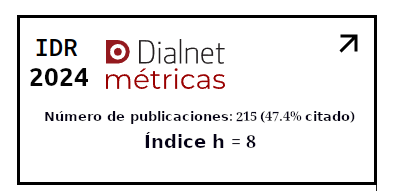Are good governance codes useful to mitigate public pseudo-leadership?
Keywords:
Leadership, political corruption, good governanceAbstract
Leadership is one of the main roles of institutions and the lack of integrity of certain leaders affects the decision logic. The corruption of leadership degenerates into a pseudo-leadership which benefits from the principle of hierarchy that exists in all organizations. The lack of integrity of the leaders affects decision making and the structure of the organization. Corrupt dynamics often show regular and organized behavior because they adapt to an institutionalized script and to the existence of interpersonal networks. Corruption cases have stimulated in the last decade the elaboration of a legislative repertoire of codes of good governance in public administrations. Good governance codes are tools that aim to regulate the behavior of politicians. This work addresses the study of the preventive efficacy of good governance codes in the face of corrupt frames created in public institutions and focuses on a case study.
Downloads
References
Abellán-López, M. A. (2017). Del cielo normativo a la tosca materia. La transformación discursiva del buen gobierno en gobernanza. Foro Interno: Anuario de Teoría Político, 17, 55-72.
Abellán-López, M. A., y Pardo-Beneyto, G. (2018). La nueva configuración del sistema de partidos valenciano. Una aproximación institucionalista. Convergencia. Revista de Ciencias Sociales, 77, 175-200.
Aronson, E. (2001). Integrating leadership styles and ethical perspectives. Canadian Journal of Administrative Sciences, 18 (4), 244-256.
Arredondo Trapero, F. (2010). La integridad en el liderazgo transaccional y transformacional, una aproximación ética al tema. XV Congreso Internacional de Contaduría, Administración e Informática. México.
Avolio, B., Walumbwa, F., y Weber, T. (2009). Leadership: current theories, research and future directions. Annual Review of Psychology, 60, 421-449.
Bass, B. (1985). Leadership and performance beyond expectations. New York: Free Press.
Bass, B. (1998). The ethics of transformational leadership. En J. Ciulla (ed.), Ethics the heart of leadership (pp.169-192). Wesport: Praeger.
Burns, J. M. (1978). Leadership. New York: Harper and Row.
Ciulla, J. (2009). Leadership and the Ethics of Care. Journal of Business Ethics, 88 (1), 3-4.
Crespo, R. (2016). Caso Taula: La trama de las comisiones implica al presidente del PP de Valencia, a Camps y a varios exconsellers. Recuperado de https://ir.uv.es/07VUiz7
Cartier-Bresson, J. (1997). Corruption networks, transaction security and ilegal social Exchange. Political Studies, 45 (3), 463-476.
De Lancer Julnes, P., y Villoria, M. (2014). Understanding and addressing citizens' perceptions of corruption: The case of Spain. International Review of Public Administration, 19 (1), 23-43.
Della Porta, D. (1996). Partidos políticos y corrupción: Reflexiones sobre el caso italiano. Nueva Sociedad, 145, 92-109.
Della Porta, D. (2001). Los actores de la corrupción: Políticos de negocios en Italia. Gestión y Análisis de Políticas Públicas, 21, 23-34.
Fernández-Dols, J. M. (1997). Corrupción, lo que nunca se quiere saber pero siempre gusta preguntar. Anuario de Psicología Jurídica, 7, 149-164.
García, M. (2010). Aprender a liderar. Barcelona: Paidós.
Kanungo, R., y Mendonca, M. (1996). Ethical dimensions of leadership. SAGE Publications.
Kanungo, R. (2001). Ethical values of transactional and transformational leadership. Canadian Journal of Administrative Sciences, 18 (4), 257-265.
Katz, R., y Peter, M. (1993). The evolution of party organizations in Europe: The three faces of party organization. American Review of Politics, 14, 593-617.
Katz, R., y Mair, P. (1995). Changing models of party organization and party democracy: The emergence of the cartel party. Party Politics, 1, 5-28.
Katz, R., y Mair, P. (1996). Cadre, catch-all or cartel?: A rejoinder. Party Politics, 2(4), 525-534.
Kopecky, P., Mair, P., y Spirova, M. (2012). Party patronage and party government in european democracies. Oxford: Oxford University Press.
Landman, T. (2016). Issues and methods in comparative politics. London: Routledge.
Lijphart, A. (1971). Comparative politics and the comparative method. American Political Science Review. doi: https://doi.org/10.2307/1955513
Lowi, T. (1964). American business and public policy case studies and political theory. World Politics, 16 (4), 677-715.
Lowi, T. (1972). Four systems of policy, politics and choice. Public Administration Review, 32 (4), 289-310.
Luthans, F., y Avolio, B. (2003). Authentic leadership: A positive developmental approach. En K. S. Cameron, J. E. Dutton, y R. E. Quinn, positive organizational scholarship (pp. 241-261). Barrett-Koehler: San Francisco.
Máiz, R. (2005). El clientelismo de partido y la corrupción política. En J. Montabes, (coord.) Instituciones y procesos políticos: Homenaje a José Cazorla (pp. 363-390). Madrid: Centro de Investigaciones Sociológicas.
Maroto, V. (2016a). El sumario de Taula confirma que las mordidas afectaban a toda la estructura del PP en la Comunitat Valenciana. Recuperado de https://ir.uv.es/us04izV.
Maroto, V. (2016b). Guía rápida para no perderse en la Operación Taula. Recuperado de https://ir.uv.es/9qJDjsU
Meyer, J., y Rowan, B. (1977). Institutionalized organizations: Formal structure as myth and ceremony. American Journal of Sociology, 83(2), 340-363.
Nieto, J. (2015). Las grabaciones de Alfonso Rus revelan favores políticos a un sobrino de Rita Barberá. Recuperado de https://ir.uv.es/TVEgbe0
Pardo-Beneyto, G. (2016). ¿Administraciones de cristal o espejismos interesados?: La transparencia no quiere (o no puede) ser transparente. Revista Española de la Transparencia, 3, 20-22.
Pettit, P. (1999). Republicanismo: Una teoría sobre la libertad y el gobierno. Paidós: Barcelona.
Pitarch, S. (2017). Los dieciséis 'zombis' de la empresa de construcción de colegios: De cantera del PP a prejubilaciones para exconcejales. Recuperado de https://ir.uv.es/YraZy7b
Price, T. (2003). The ethics of authentic transformational leadership. The Leadership Quarterly, 14, 67-81.
Romero, V. (2017). Operación Taula: De Gürtel a Taula otra vez las vergüenzas de las constructoras con el PP valenciano. Elconfidencial.com
Rosanvallon, P. (2015). Le bon gouvernement. Paris: Seuil.
Sartori, G., y Morlino, L. (1999). La comparación en las ciencias sociales. comparación y método comparativo. Madrid: Alianza.
Simola, S., Barling, J., y Turner, N. (2010). Transformational leadership and leader moral orientation: Contrasting an ethic of justice and ethic of care. The Leadership Quarterly, 21, 179-188.
Tanzi, V. (1998). Corruption around the world: Causes, consequences, scopes and cures. International Monetary Fund Staff Papers, 45:4.
Villoria, M., Van Ryzin, G., y Lavena, C. (2013). Social and political consequences of administrative corruption: A study of publica perceptions in Spain. Public Administration Review, 73 (1), 85-94.
Published
How to Cite
Issue
Section
License
Copyright (c) 2021 ACADEMO Revista de Investigación en Ciencias Sociales y Humanidades

This work is licensed under a Creative Commons Attribution 4.0 International License.








